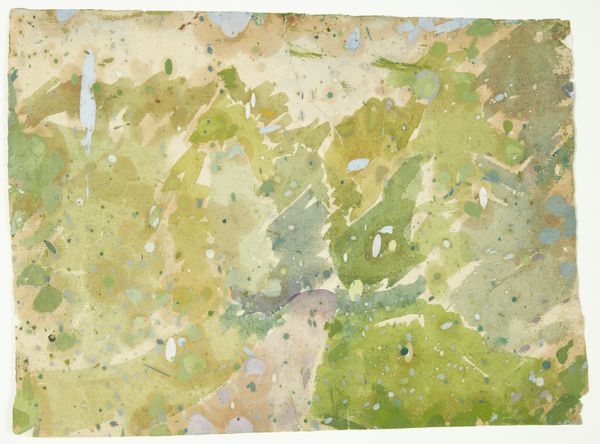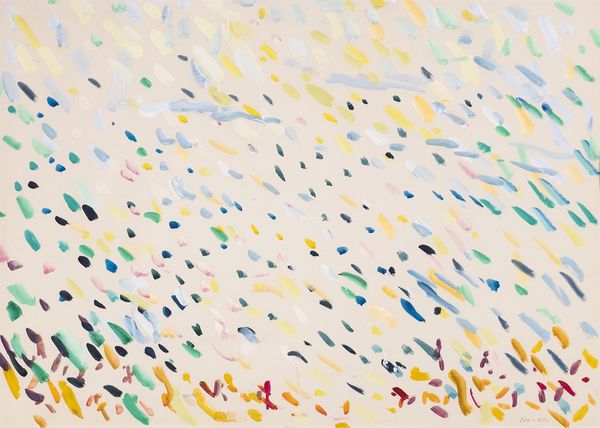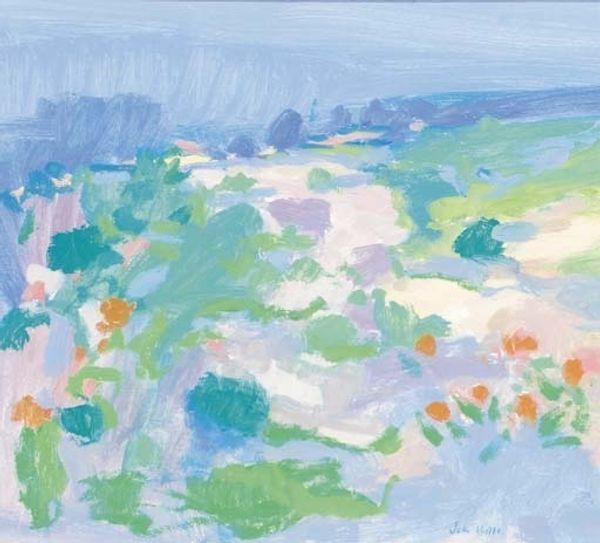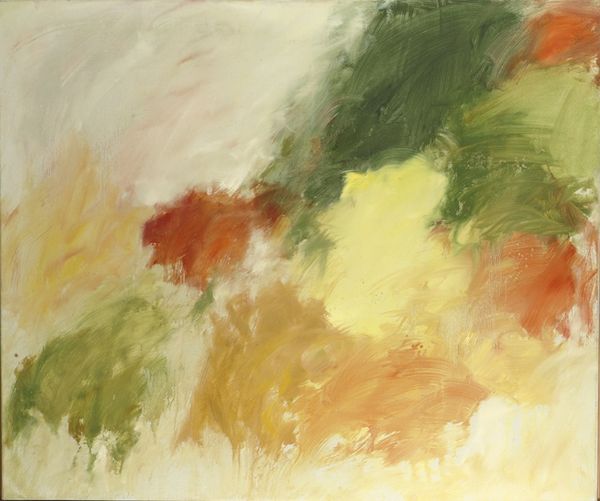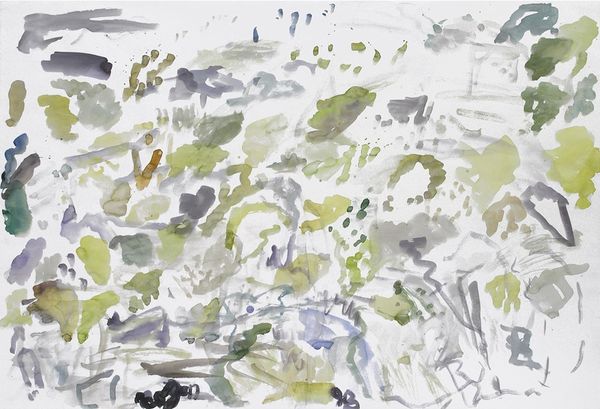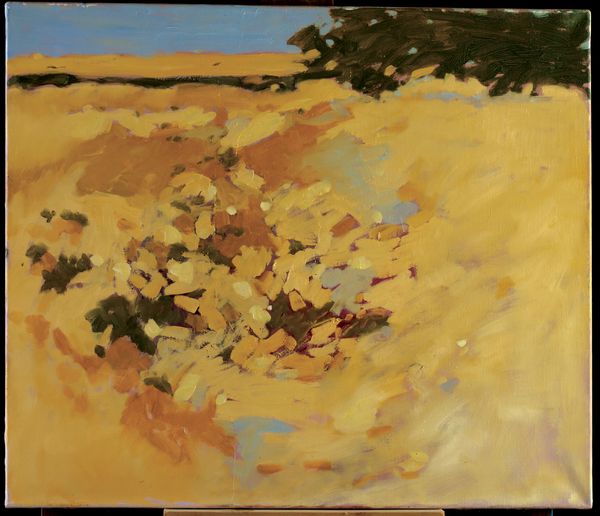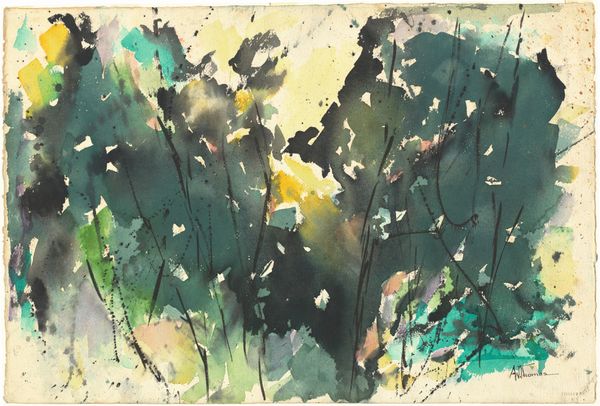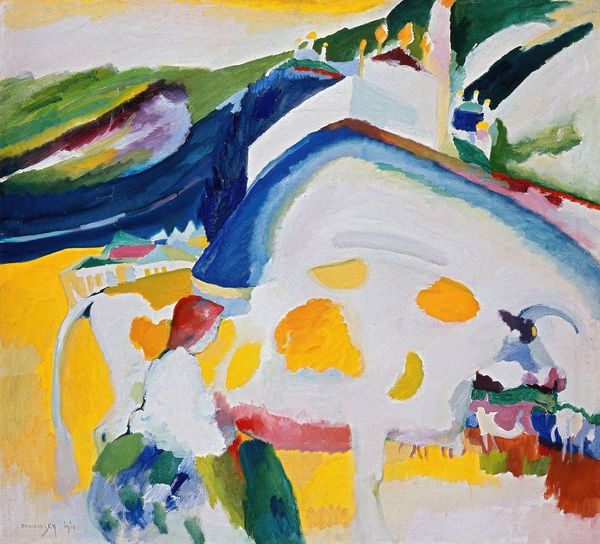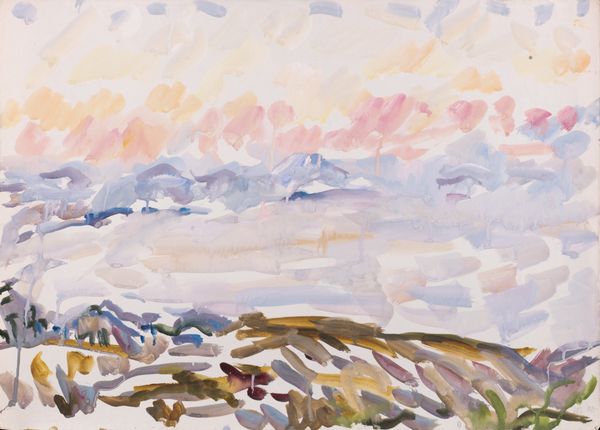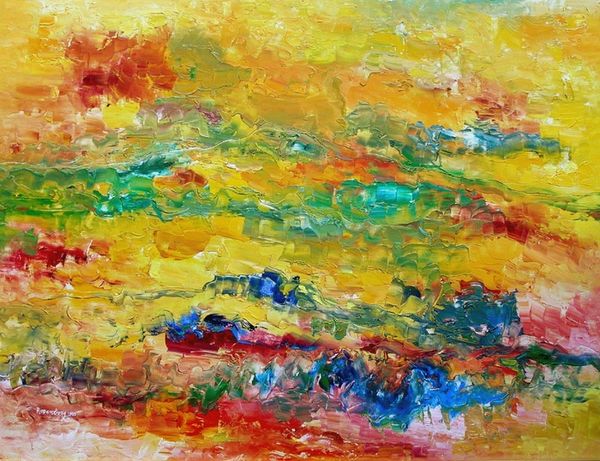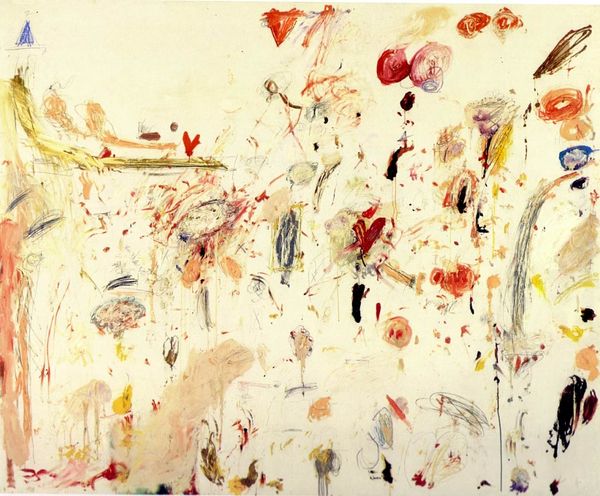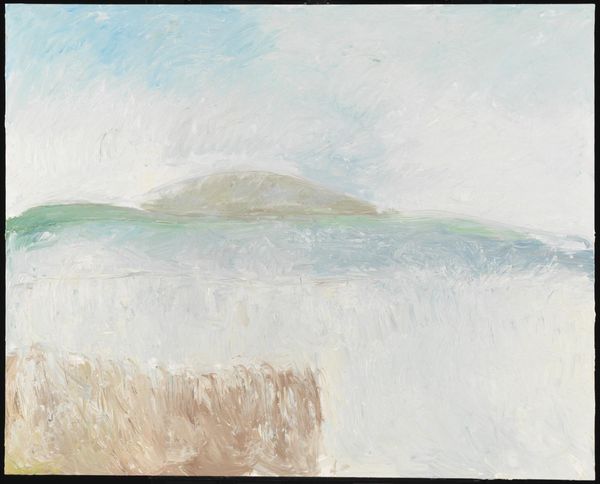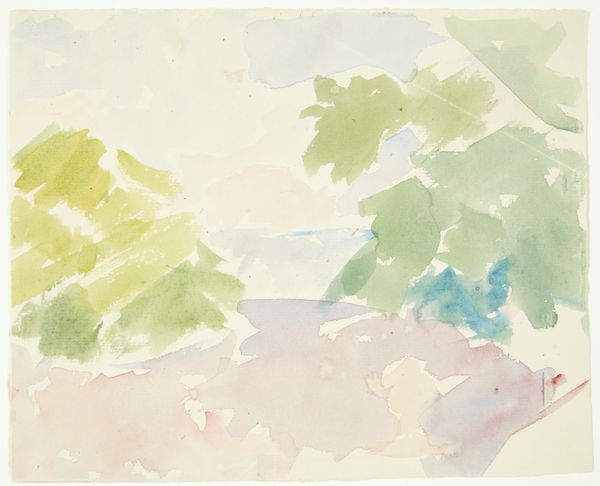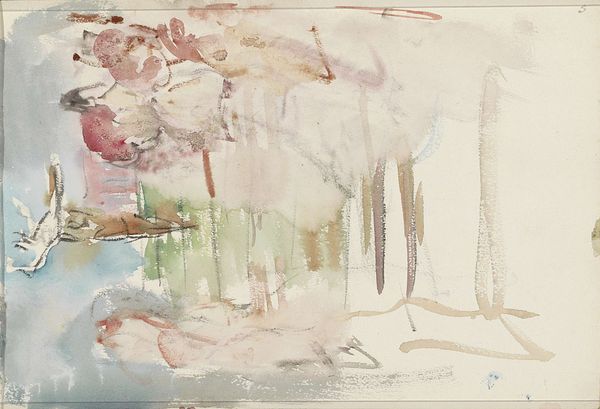
painting, watercolor
#
abstract painting
#
painting
#
asian-art
#
landscape
#
watercolor
#
abstraction
#
abstract art
#
watercolor
Copyright: Wu Guanzhong,Fair Use
Curator: This work is "The Blooming Mountain" by Wu Guanzhong, a stunning abstract watercolor painting. Editor: It feels like an explosion of spring, doesn’t it? So airy, light…almost weightless. The colors, though…they seem very deliberate in their placement, but also spontaneous. Curator: Indeed. Guanzhong uniquely merged traditional Chinese ink painting techniques with Western abstract art practices. He carefully studied the inherent qualities of watercolor. This work, specifically, underscores his understanding of color mixing and the behavior of water on paper to evoke texture. Editor: Absolutely. Looking closer, one recognizes his commitment to deconstructing representation and re-imagining landscapes in terms of pure chromatic sensation, wouldn’t you agree? This piece is less about mimicking the natural world and more about feeling it, a subjective experience deeply rooted in identity and memory. Where did Wu fit within the revolutionary discourses of his time? Curator: As an artist trained in both China and France, he grappled with issues of cultural identity and artistic expression amidst socio-political turmoil, the materials themselves reflect that duality. Note the rice paper's delicacy and compare it to the boldness of the abstracted shapes and how that is reminiscent of the industrialization of post Mao China and its effect. Editor: Right! So, in considering it like that, can we view the ‘Blooming Mountain’ not simply as landscape representation, but a potent expression of cultural negotiations amidst globalization? It feels radical and progressive, and it resonates because of its material connection to both culture and innovation. Curator: It surely underscores the point that abstract painting can serve as more than decorative or aesthetic pursuit, it provides social commentary rooted in cultural and global interaction. Editor: Precisely. By viewing 'Blooming Mountain' as an articulation of personal experience intersecting broader political and socio-economic transformation, we understand art is the means, not the end. Curator: It definitely encourages further investigation beyond visual appeal and leads toward deconstructing societal power. It is hard to simply remain in one’s subjective perception while engaging in such art, especially within today's highly charged and digitized context. Editor: Thank you! It's a valuable addition to the contemporary canon.
Comments
No comments
Be the first to comment and join the conversation on the ultimate creative platform.
